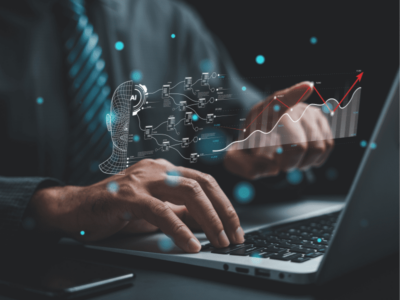
IonQ sets world record with 99.99% two-qubit gate fidelity
 Cette publication existe aussi en Français
Cette publication existe aussi en Français
Quantum computing leader IonQ has announced a new world record in two-qubit gate fidelity, achieving 99.99% — a major leap in quantum gate accuracy. This breakthrough makes IonQ the first company to surpass the “four-nines” threshold, marking a critical milestone toward fault-tolerant, large-scale quantum systems.
For eeNews Europe readers, this milestone is particularly relevant as it showcases how semiconductor-based control electronics are driving practical quantum computing. IonQ’s Electronic Qubit Control (EQC) approach could accelerate hardware scalability and bring quantum processing closer to integration with established semiconductor manufacturing.
Crossing the four-nines barrier
Two-qubit gate fidelity is a central measure of quantum computing performance, indicating how precisely two qubits can interact without error. As this figure approaches 100%, systems need fewer corrective operations to run complex quantum algorithms effectively.
IonQ’s new record surpasses the previous benchmark of 99.97%, set in 2024 by Oxford Ionics, which IonQ acquired earlier this year. The demonstration, detailed in the company’s newly released technical papers, was achieved using IonQ’s proprietary EQC technology — a system that replaces traditional laser-based qubit control with precision electronics.
“Reaching four-nines fidelity is a watershed moment for IonQ’s quantum leadership,” said Niccolo de Masi, Chairman and CEO of IonQ. “This level of quantum performance has been the industry’s north star for decades and crossing it brings fault-tolerant quantum systems years closer to mass market adoption.”
Semiconductor-based quantum scalability
IonQ’s EQC technology integrates all qubit-control components onto semiconductor chips, allowing fabrication using standard foundry processes. This approach promises easier scaling, higher stability, and lower costs compared to traditional laser-controlled ion trap systems.
“In exceeding the 99.99% threshold on chips built in standard semiconductor fabs, we are now on a clear path to millions of qubits whilst unlocking powerful new commercial applications sooner,” added Dr. Chris Ballance, co-founder of Oxford Ionics and now part of IonQ.
The company’s prototypes demonstrating this record will underpin its upcoming 256-qubit system, scheduled for a 2026 debut. IonQ claims this advance could enable quantum systems with 10 billion times higher error-corrected performance than the previous 99.9% fidelity standard, significantly reducing the number of qubits required for large-scale quantum error correction.
From R&D to real-world applications
Beyond the lab, IonQ has already begun showing practical benefits from its technology. The company reports a 20× speed-up in quantum-accelerated drug discovery and measurable improvements in computer-aided engineering compared to classical systems. IonQ is also exploring applications in autonomous vehicles and artificial intelligence.
IonQ aims to scale its quantum systems to 2 million qubits by 2030, positioning itself as a leader in both quantum hardware and networking infrastructure. Its systems are already available through major cloud platforms, including Amazon Web Services.
For Europe’s semiconductor and computing sectors, IonQ’s EQC-based approach signals a meaningful convergence between quantum innovation and classical semiconductor manufacturing — a key step toward bringing quantum computing into mainstream industrial and commercial applications.
 If you enjoyed this article, you will like the following ones: don't miss them by subscribing to :
eeNews on Google News
If you enjoyed this article, you will like the following ones: don't miss them by subscribing to :
eeNews on Google News





